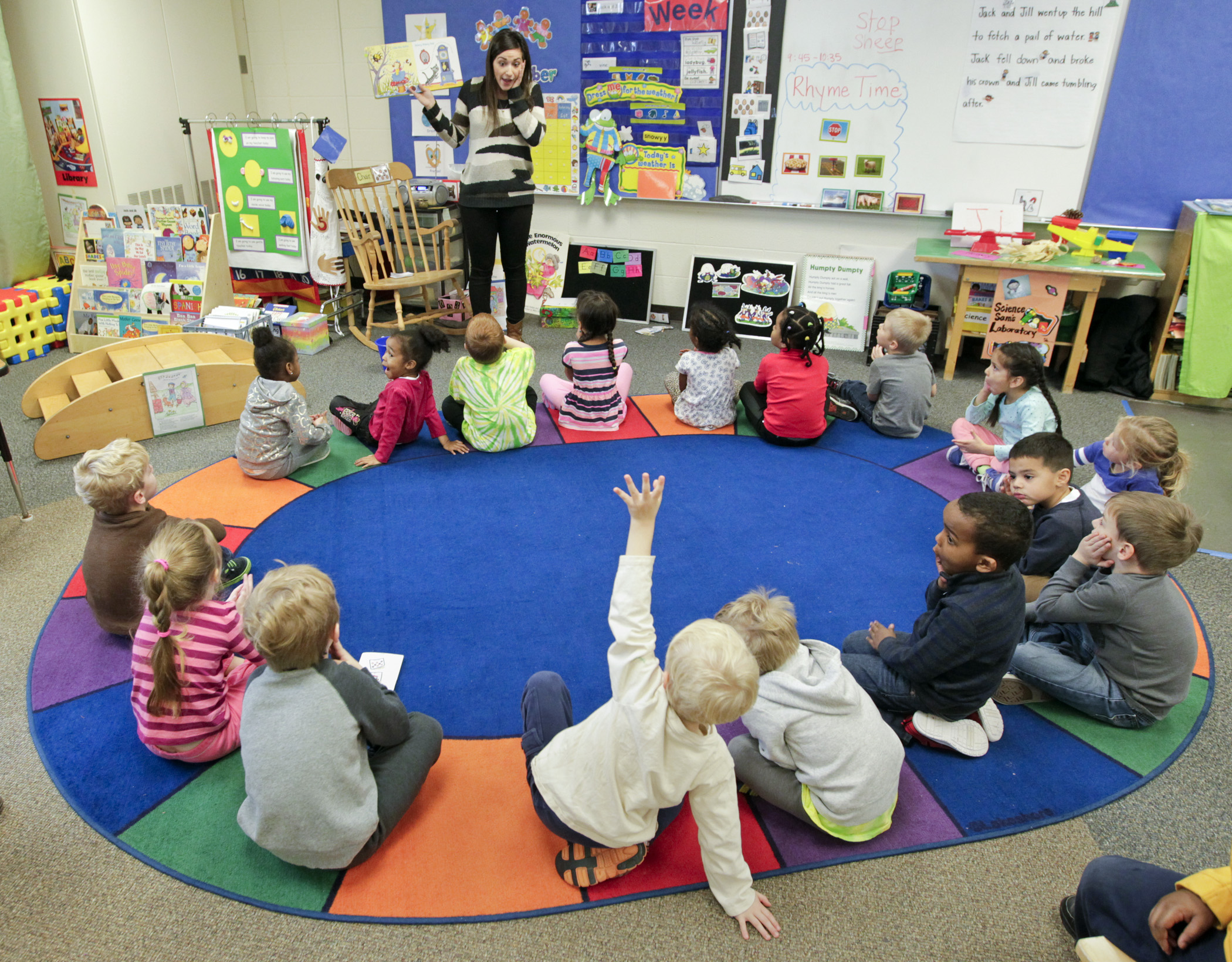Legislation proposes $97 million for new voluntary prekindergarten program

Gov. Tim Walz’s goal of investing in Minnesota’s young leaners to set them on a path of future success found expression in HF4570.
Sponsored by Rep. Dave Pinto (DFL-St. Paul), the bill serves as the House Early Childhood Finance and Policy Committee's budget proposal for 4-year-old pre-kindergarten programs.
As amended, it was approved on an 8-5 party-line vote Thursday and referred to the House Education Finance Committee where it is scheduled to be heard informally Friday.
The bill would allow school districts, charter schools, child care centers, licensed family child care providers or a Head Start agency that meets certain requirements to establish voluntary prekindergarten programs.
Those programs would be required to provide at least 850 hours of instruction per year with program content aligned with the state’s early learning standards. Providers would need to assess each child’s progress toward state standards at program entrance and exit and the program would need to employ a lead teacher, with at least a bachelor's degree, in each classroom no later than July 1, 2028.
It would appropriate $96.9 million from the General Fund in fiscal year 2023 to the Department of Education to fund voluntary prekindergarten programs provided by Head Start and licensed child care providers.
School district and charter school programs would be funded based on the number of students enrolled. Head Start and licensed child care programs would receive $11,000 per child served per year.
Bill supporters said the voluntary prekindergarten programs would offer kids high-quality learning opportunities, while opponents highlighted the bill’s potential to marginalize licensed family child care providers by making administrative demands on them.
Republicans see the bill as causing potential problems for private child care providers by giving more decision-making powers to bureaucrats.
“We need to focus, I believe, on the scholarship program we have, the choice that it gives parents,” said Rep. Peggy Bennett (R-Albert Lea).
Ericca Maas, executive director of Close Gaps By 5, said the bill falls short of giving families maximum choice and flexibility, and may also lead to unintended consequences.
“The mixed-delivery provisions in this proposal do not go far enough and are not strong enough to overcome the very serious danger of undermining the supply of quality child care available to infants and toddlers,” Maas said.
A better approach to improving early childhood programs, she said, would involve scaling up the scholarship program to serve the entire cohort of birth to age 5 with parents directing funding instead of a school district.
Maas wondered if the families would need to change their child care providers once they attain age 4.
Cyndi Cunningham, a licensed family care provider and public policy chair of the Minnesota Child Care Provider Information Network, said the proposal would shift children to school away from other forms of care. “School districts frequently do not recognize child care as a quality setting, and we believe will continue to be marginalized,” Cunningham said.
Other notable provisions in the bill would:
- require providers (to the extent practicable for Head Start and licensed child care programs) to pay salaries equivalent to the salaries of public elementary school staff with similar credentials and experience for school district and charter school programs; and
- define an “eligible child” for purposes of voluntary prekindergarten programs a child who is 4 years old as of Sept. 1 in the calendar year of enrollment.
Related Articles
Search Session Daily
Advanced Search OptionsPriority Dailies
Speaker Emerita Melissa Hortman, husband killed in attack
By HPIS Staff House Speaker Emerita Melissa Hortman (DFL-Brooklyn Park) and her husband, Mark, were fatally shot in their home early Saturday morning.
Gov. Tim Walz announced the news dur...
House Speaker Emerita Melissa Hortman (DFL-Brooklyn Park) and her husband, Mark, were fatally shot in their home early Saturday morning.
Gov. Tim Walz announced the news dur...
Lawmakers deliver budget bills to governor's desk in one-day special session
By Mike Cook About that talk of needing all 21 hours left in a legislative day to complete a special session?
House members were more than up to the challenge Monday. Beginning at 10 a.m...
About that talk of needing all 21 hours left in a legislative day to complete a special session?
House members were more than up to the challenge Monday. Beginning at 10 a.m...